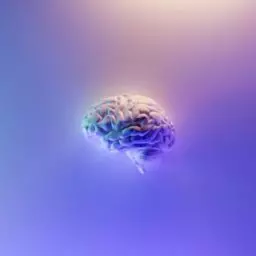
What can you do with a Neuroscience Degree?
According to Bellarmine University, neuroscience is a career field that attempts "to unravel the many mysteries of the nervous system. Studying how the nervous system works, develops, and malfunctions is the only way to discover if and how it can be repaired." Are you interested in the science of the brain? "This multidisciplinary major exists at the intersection of biology and psychology and contains many subfields within it."Neuroscience is the scientific study of nervous systems. A Degree in Neuroscience is interdisciplinary and includes studies in fields including:
- Anatomy
- Behavioral functions
- Biochemistry
- Evolution
- Genetics
- Pharmacology
- Physiology of nervous systems
- Biologically-styled robotics
- Biologically-styled prosthetics
- Psychiatric diseases
Jobs with this degree include:
- Top Executive– plans strategies and policies to ensure that an organization meets its goals. Median Annual Salary: $99,000.
- Medical Scientist– Conducts research aimed at improving overall human health. Median Annual Salary: $95,000.
- Postsecondary Teacher – instructs students in courses beyond the high school level. Median Annual Salary: $80,000.
- Health Education Specialist- develops programs to teach people about conditions affecting well-being. Median Annual Salary: $60,000.
- Community Health Worker- promotes wellness by helping people adopt healthy behaviors. Median Annual Salary: $46,000.
Is a Neuroscience Degree hard?
Students who appreciate a solid STEM education will especially enjoy this field of study.GI BIll and Yellow Ribbon Program options to Earn a Degree in Neuroscience
Our list of GI Bill participating schools is below. Don't forget to explore your other military financial aid and veteran student financial aid opportunities. There is also help for military spouses who need scholarships and other financial aid.Filters
Degree Level
Search and select multiple degree level.
Search and select multiple degree level.
Associate's degree
Bachelor's degree
Certificates
Doctorate degree
Master's degree
Degree Program or Area of Study
Search and select multiple area of focus.
Search and select multiple area of focus.
Biochemistry
Biology
Genetics
Neuroscience
Accounting & Finance
Advertising
Aerospace, Aviation, Aeronautical, and Astronautical Engineering
Agriculture Business & Production
Agriculture Science
Airframe & Powerplant
American/United States Studies/Civilization
Animal & Livestock Sciences
Anthropology
Arabic Language & Literature Studies
Architecture Studies
Art History, Criticism and Conservation
Art Teacher
Art, Animation, Design General
Astronomy
Auto/ Transportation Studies
Automotive Mechanics Technician
Aviation
Bio/ Chemical Engineering
Biology Teacher
Biomedical & Medical Engineering
Biotechnology
Business Administration
Business Analytics
Business Operations Support and Assistant Services
Carpentry / Carpenters
Chemistry
Chiropractic / Chiropractor
Civil Engineering
Communications
Computer Engineering
Computer Science
Computer Technician
Conflict & Dispute Resolution
Construction Engineering
Construction/ Labor
Cosmetology, Grooming, Haircare & Styling
Counter Terrorism
Criminal Justice Policy
Criminal Justice, General
Culinary Arts & Food Services
Culinary Management
Culinary Studies
Cultural & Language Studies
Curriculum and Instruction
Cyber Security & Operations
Dance
Data Analytics
Data Analytics & Data Science
Data Science
Dental Assistant
Dentistry
Early Childhood Education
Earth & Environmental Sciences
Eastern Medicine
Economics
Education Administration
Education/ Teacher Development
Electrical Engineering
Electrician Technology
Electrocardiograph Technology/Technician
Elementary Education
Emergency Medical Technician (EMT Paramedic)
Emergency Services
Energy Systems
Energy Systems Engineering
Engineering General
Engineering Technologies/Technicians
Engineering Technology
English
English as a Second Language/ESL Language Instructor
English/Language Arts Education
Entrepreneurship/Entrepreneurial Studies
Executive Assistant - Certificate
Fashion
Film & Photography
Finance Crime
Fire Science & Fire Services
Funeral Service & Mortuary Science
General Disciplines Teacher Education
General, Multi-/Interdisciplinary Studies
Geography
Geology/Earth Science
Graphic Design
Health Data Analysis
Health Science
Healthcare Administration
Heating, Air Conditioning, Ventilation and Refrigeration Maintenance Technology/Technician (HAC, HACR, HVAC, HVACR)
Hemodialysis Technician
History
Homeland Security
Hospitality/ Tourism
Human Behavior Studies
Human Resources
Human Services, General
Humanities/Humanistic Studies
HVACR
Industrial Engineering
Information Sciences
Information Technology
Integrative and Functional Medicine
Interior Design
International Business/Trade
International Relations / Global Studies
IT Management
IT Security
IT Support
Journalism
Junior High/Intermediate/Middle School Education
Lab Sciences
Language Teacher Education
Leadership & Management
Legal Assistant/Paralegal
Legal/ Law Studies
Library Science & Administration
Logistics & Supply Chain Management
Management in Energy
Management Information Systems
Marketing & Retail
Massage Therapy
Mathematics
Mechanical Engineering
Medical Administrative Assistant
Medical Assistant
Medical Coding and Billing
Medical Residency
Medical Transcription Editing
Music & Singing
Music Education
Naturopathic
Nuclear Engineering
Nursing
Nutrition
Occupational Therapy / Sciences
Optometry
Personal Trainer
Pharmacy
Pharmacy Technician
Philosophy
Physical Education Teaching / Coaching
Physical Sciences (Other)
Physical Therapy/ Exercise Science
Physican Assistant
Physics
Physiology
Police/Corrections/ Criminal Studies
Political Science
Pre-healthcare Studies
Procurement & Acquisition
Project Management
Psychology Studies
Public Administration
Public Health
Public Relations
Public Sector Management
Radiology and Medical Imaging Sciences
Reading Teacher
Real Estate
Religious Studies
ROTC
School Counseling and Guidance
Science Teacher
Secondary Education
Security & Military Science
Skin/ Make-Up/ Nail Specialist
Social Sciences
Social Studies Teacher
Social Work
Sociology
Spanish
Special Education
Sports and Fitness Administration
Statistics & Business Analytics
Surgery Residency/Fellowship Programs
Theatre
Trade/ Technicians
Vehicle/ Engine Technology/ Repair
Veterinary Assistant
Veterinary Science & Animal Care
Welding
Womens Studies
Where do you plan to study?
Alabama
Alaska
Arizona
Arkansas
California
Colorado
Connecticut
Delaware
Florida
Georgia
Hawaii
Idaho
Illinois
Indiana
Iowa
Kansas
Kentucky
Louisiana
Maine
Maryland
Massachusetts
Michigan
Minnesota
Mississippi
Missouri
Montana
Nebraska
Nevada
New Hampshire
New Jersey
New Mexico
New York
North Carolina
North Dakota
Ohio
Oklahoma
Online
Oregon
Pennsylvania
Puerto Rico
Rhode Island
South Carolina
South Dakota
Tennessee
Texas
Utah
Vermont
Virginia
Washington
Washington, DC
West Virginia
Wisconsin
Wyoming
Type of School
Years Offered
Campus Setting
Size of School
Gender-Specific
Religious Affiliation
Religious Affiliation
Ethnic Affiliation
Financial SupportAcademic SupportPrograms



















